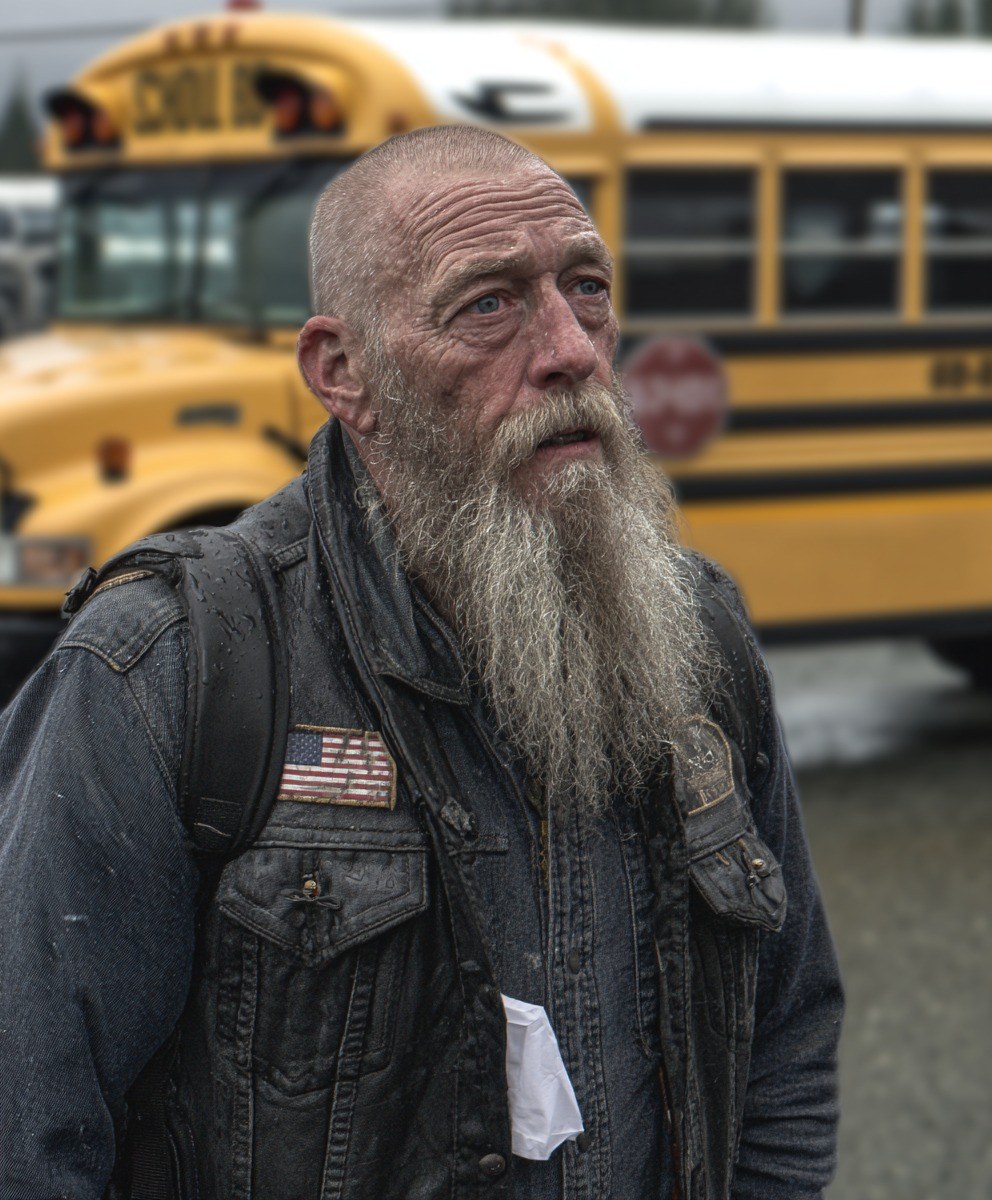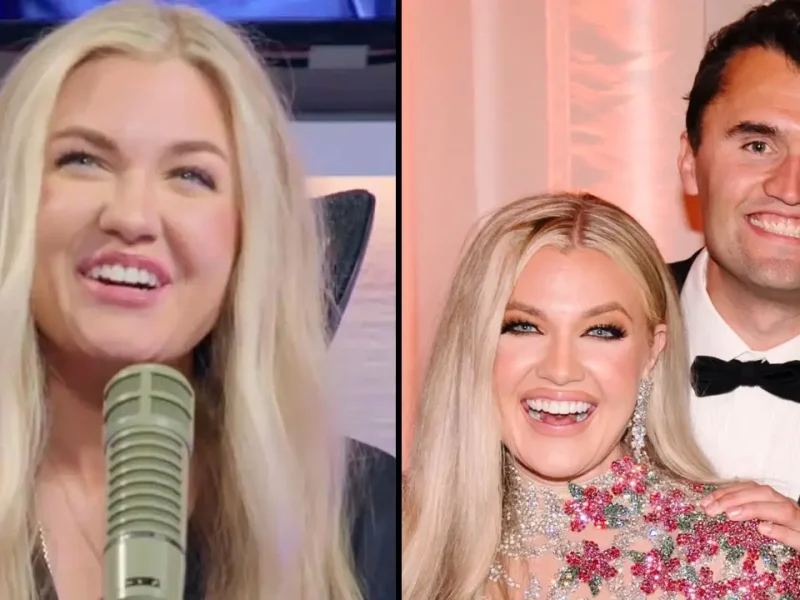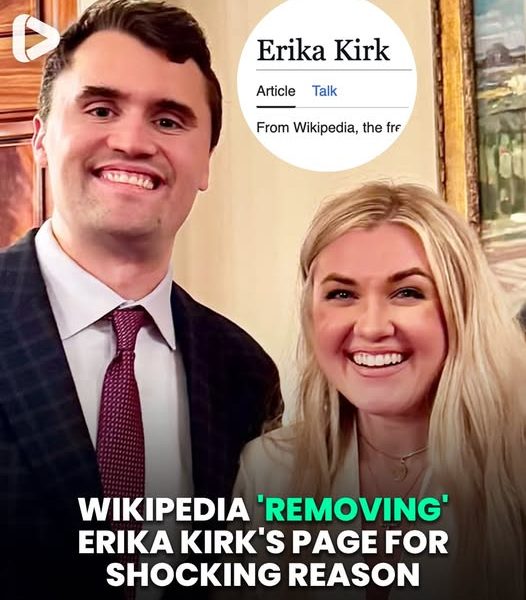I was suspended one month before retirement, just because some parent spotted me at a motorcycle rally. Forty-two years I’d driven that yellow bus. Never had an accident. Never been late.
Knew every child’s name, which ones needed a little extra encouragement in the morning, which ones needed a quiet word when their parents were fighting. For four decades, I was the first smile those kids saw after leaving home and the last goodbye before they returned.
None of that mattered after Mrs. Westfield saw me with my club at the Thunder Road Rally. Took pictures of me in my leather vest, standing beside my Triumph. Next day, she was in Principal Hargrove’s office with a petition signed by eighteen parents demanding the “dangerous biker element” be removed from their children’s bus.
“Administrative leave pending investigation,” they called it. But we both knew what it was—a death sentence for my career, a shameful exit instead of the retirement ceremony I’d been promised. All because I committed the terrible sin of riding a motorcycle on my own time.
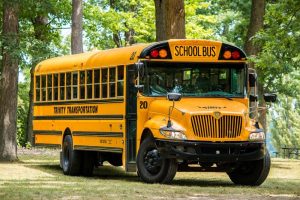
I sat in Principal Hargrove’s office that Monday morning, my weathered hands gripping the arms of the chair as he slid the paperwork across his desk. Couldn’t even look me in the eye—this man I’d known for twenty years, whose own children I’d driven safely to school through blizzards and downpours.
“Ray,” he finally said, voice barely above a whisper, “several parents have expressed concern about your… association with a motorcycle gang.”
“Club,” I corrected, feeling heat rise up my neck. “It’s a motorcycle club, John. The same one I’ve belonged to for thirty years. The same one that raised $40,000 for the children’s hospital last summer. The same one that escorted Katie Wilson’s funeral procession when she died of leukemia—a girl I drove to school every day until she got too sick to attend.”
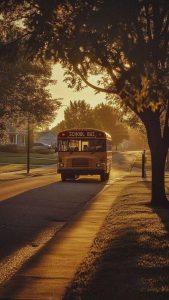
He had the decency to flinch at that, but pressed on. “Mrs. Westfield showed the board photos from some rally. You were wearing… insignia. Patches that looked… intimidating.”
I almost laughed. My vest with the American flag patch. The POW/MIA emblem I wore to honor my brother who never came home from Vietnam. The patch that said “Rolling Thunder” because we supported veterans.
“So that’s it? One month before I retire, you’re suspending me because some parents suddenly discovered I ride a motorcycle?”
“Ray, please understand our position. The safety of the children—”
“Don’t.” I held up my hand. “Don’t you dare talk to me about the safety of those kids. I carried Jessica Meyer from her driveway to the bus for three years after her accident. I performed CPR on Tyler Brooks when he had an asthma attack. I’ve gotten every single child home safe through forty-two years of driving, even when the roads were sheets of ice and I couldn’t feel my fingers on the wheel.”
My voice broke then, something that hadn’t happened since Margaret passed five years back.
“And now I’m dangerous? Now I’m a threat?” I stood up, my old knees protesting. “You know what, John? You tell those parents who signed that petition that for forty-two years, I’ve been exactly who I am today. The only thing that’s changed is now they’ve decided to be afraid of a man they never bothered to know.”
I walked out of his office with what dignity I could muster. But inside, something was crumbling—the faith I’d had in a community I thought I belonged to.
Home wasn’t much comfort that night. Our little ranch house felt emptier than usual without Margaret. She’d been gone five years, but sometimes the silence still caught me off guard. I wandered out to the garage where my 2003 Harley Road King waited, its midnight blue paint gleaming under the fluorescent lights.
“Just you and me now, old girl,” I murmured, running my hand along the handlebars.
I’d bought this bike after Margaret’s cancer diagnosis. Riding was the only time my mind quieted enough to process what was happening, the only place I could let the tears come without feeling like I was burdening her with my grief. The wind washed it all away, if only for a little while.
I sat on the concrete floor beside the Harley, my back against the workbench, and let the memories flood in.
Tommy Wilkins was the first to come to mind. Skinny kid with a stutter, started riding my bus in 1986. Every morning, he’d linger a few extra seconds to look at my bike parked in the school lot.
“Y-you ever g-going to let me s-sit on it, Mr. Ray?” he’d ask.
I finally did, one Friday afternoon when his mother was late picking him up. His face lit up like Christmas morning as he straddled the seat, gripping the handlebars with reverent hands.
Tommy grew up, graduated, joined the Marines. Came back from his third tour in Afghanistan with haunted eyes and trembling hands. I ran into him at the grocery store one day, barely recognized the hollow-cheeked man as the boy who’d admired my bike.
“You still ride, Mr. Ray?” he’d asked, no stutter now, but something worse—a flatness, like he was speaking from underwater.
“Every Sunday,” I told him. “Weather permitting.”
That Sunday, he was waiting in my driveway at dawn, an old Sportster beneath him. We rode for hours, up into the mountains, not speaking, just riding. When we stopped for coffee, I noticed his hands weren’t shaking anymore.
For two years after that, Tommy rode with me every Sunday. Sometimes we talked, sometimes we didn’t. He told me once that the only time his mind quieted, the only time the memories stopped playing on repeat, was when he was on his bike.
“It’s like… the wind blows all the darkness away, just for a little while,” he’d said. “Lets me remember I’m still alive.”
Tommy was married now, with kids of his own. Still rode. Still called me “Mr. Ray.”
And there were others. Sarah Jenkins, who’d lost her husband and started riding his old Indian as a way to feel close to him. Dave Perkins from the auto shop, who’d been sober twenty years and swore riding saved his life when the bottle almost took it. My club brothers, most of them Vietnam vets who’d found on two wheels the peace that eluded them on four.
We weren’t outlaws. We were accountants and plumbers, retired cops and schoolteachers. We were men and women who’d discovered that sometimes, the only way to stay sane in a broken world was to feel the wind on your face and the rumble of an engine in your chest.
But none of that mattered to people like Mrs. Westfield, who saw a leather vest and imagined gang violence. Who looked at weathered men on motorcycles and saw only danger, not decades of quiet dignity.
The first call came the next morning. Cindy Parker, mother of twins I’d driven for six years.
“Ray, this is ridiculous,” she said without preamble. “Jacob and Jason are devastated. They said the substitute driver wouldn’t play their game this morning.”
The boys and I had a routine—they’d call out car models, and I’d honk once for American-made, twice for foreign. Simple thing, but it was ours.
“Sorry about that,” I said, unsure what else to offer.
“What exactly happened? Everyone’s talking, but nobody seems to know the truth.”
I explained about Mrs. Westfield, the rally, the petition. Cindy’s response was immediate and profane.
“That’s the stupidest thing I’ve ever heard. You’ve been driving my kids since kindergarten. What does your motorcycle have to do with anything?”
By afternoon, my phone wouldn’t stop ringing. Parents I’d known for years, calling to express outrage. Even a few school board members, speaking “unofficially,” of course.
Then came the knock on my door. I opened it to find Emma Castillo, a quiet girl who’d ridden my bus until she graduated three years earlier. Now she was a journalism student at the community college, notebook in hand.
“Mr. Ray,” she said, “I’m writing a story for the college paper about what happened. Would you talk to me?”
I hesitated, but something in her earnest expression made me step aside to let her in.
For two hours, Emma asked questions no one had bothered to ask before. About my four decades of service. About the motorcycle club. About the charity rides and veteran support.
“Mrs. Westfield said your vest had threatening symbols,” Emma said. “Could I see it?”
I brought out my club vest. Showed her each patch and explained its meaning. The American flag. The POW/MIA emblem for my brother. The patch commemorating Rolling Thunder rides for veterans.
“This one?” she asked, pointing to a patch that read “2 Million Miles – No Cage.”
“That’s for riding two million miles without an accident,” I explained. “‘No cage’ means not in a car. Bikers call cars ‘cages.’”
Emma wrote everything down, her face growing increasingly troubled.
“Mr. Ray, did anyone from the school board or administration ask you to explain these patches?”
“No,” I said. “They just… reacted.”
